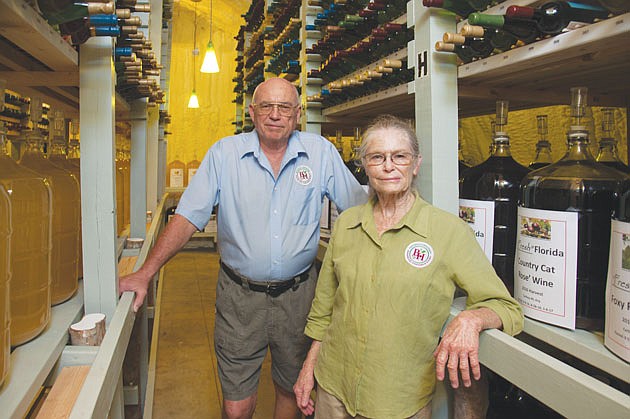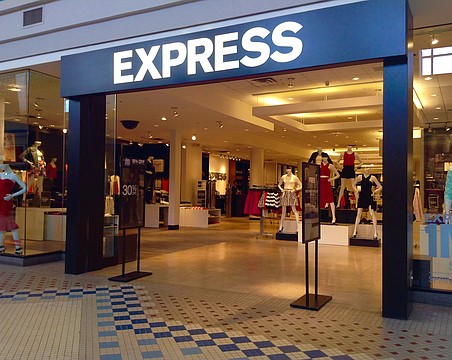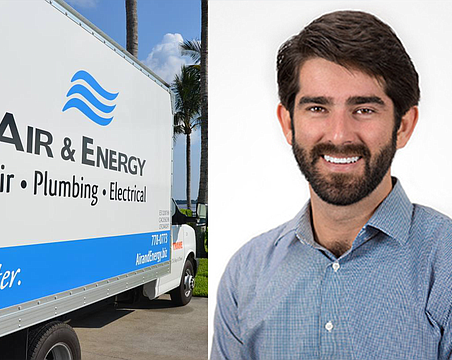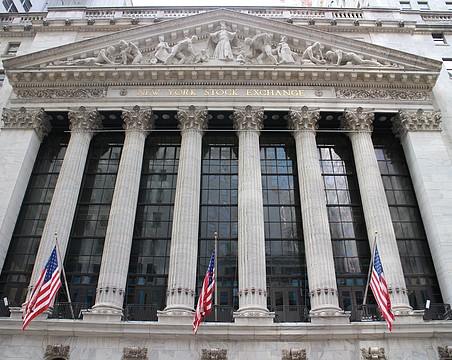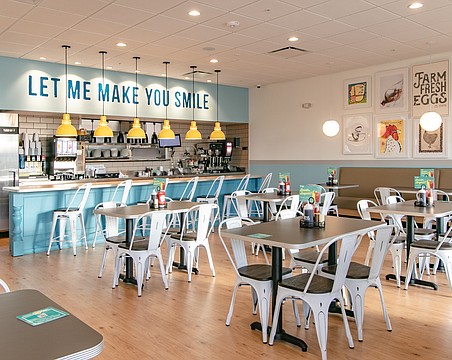At Bunker Hill Vineyard & Winery, Larry and Lenora Woodham produce nearly two dozen kinds of wine from grapes grown on their property near Parrish, in north Manatee County.
But over the life of their business, they've never spent money on one vital part of the process.
“In seven years, we've never bought a wine bottle,” says Larry Woodham. “Every single wine bottle we've ever used came from our customers.”
The winery recycles about 70,000 bottles a year, and using repurposed bottles for 100% of its product has allowed the operation to reduce its carbon footprint by 60%.
“We were green when green was just a color,” says Woodham. “We have grandkids and great-grandkids. If we don't do the right things in our lives, we're going to leave them with a legacy that isn't something to be proud of.”
The green approach has also helped the couple grow sales at Bunker Hill, on average, 30% to 40% per year since the business opened in 2010. Yields vary from year to year since the winery grows all of the grapes it uses. Some years the harvest is greater than others.
The winery welcomes 3,500 visitors per year, and visitor numbers have increased 20% to 30% each year, says Woodham. The Woodhams do all of the work themselves with the help of one part-time weekend employee.
The couple has tried to run an environmentally responsible business from the get-go. Seven varieties of muscadine grapes, which are native to the southeastern United States, are grown on the property. The Woodhams don't use pesticides, fertilizers or fungicides in their vineyards.
A solar-powered irrigation system uses rainwater collected in a 1,500-gallon cistern. “The sun comes up every day, and we can move the water from the cistern to the vines,” says Woodham. “We don't have to drill a well, hook it up to the grid, and suck the water out of the earth. Potable water is a major issue of the future. Wherever we have resources, we need to conserve them.”
Grapes are destemmed, crushed and otherwise processed with manually operated equipment. (The couple's philosophy: If you don't need the fossil fuels, don't use them.) Any fruits or vegetables added to the wines are sourced as locally as possible, some from farms just down the road. “The transportation costs are nil, and you're supporting the local economy,” says Woodham.
Wines are aged in glass carboys rather than the traditional oak barrels. The couple is passionate about this. They point out oak barrels are porous and have a short life span — and require cutting down trees that can live for hundreds of years and suck carbon out of the atmosphere.
And then there are the bottles.
It might be cheaper, on the surface, to buy a $20 case of wine bottles from China, Woodham acknowledges.
“But what's the real cost?” asks Woodham. “Is it the $20, or is the cost to the environment unacceptable? We've done the numbers. When you factor in the cleaning, sanitizing, the whole package, it only takes 16% of the energy cost to repurpose a wine bottle as it does to make a new one. We're looking at those things.”
Those repurposed bottles are finished off with natural corks and sealing wax, both of which the winery recycles. It melts down and reuses the wax and sends corks to a Missouri company that recycles them into cork floor tiles.
Customers often arrive at the winery with handfuls or even truckloads of bottles, corks and wax and earn loyalty points for their recyclable items. For customers who get Bunker Hill wine shipped to other states, the Woodhams will pay the return shipping for them to send their empties back to the winery.
Woodham says the most important part of the process is to make it all seamless for customers. “The passion that is built up out there to do the right thing is just waiting to be tapped,” says Woodham. “What if every winery in our country was doing this? Would that be a revolution? It absolutely would be. And we'd find very quickly that most citizens would be more than willing to participate. But you have to make it easy.”

